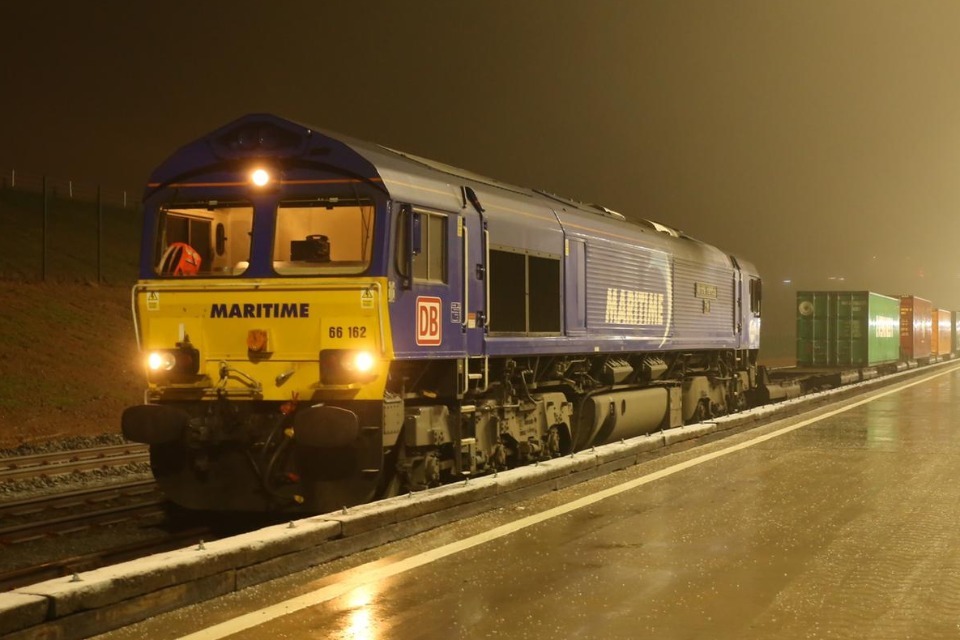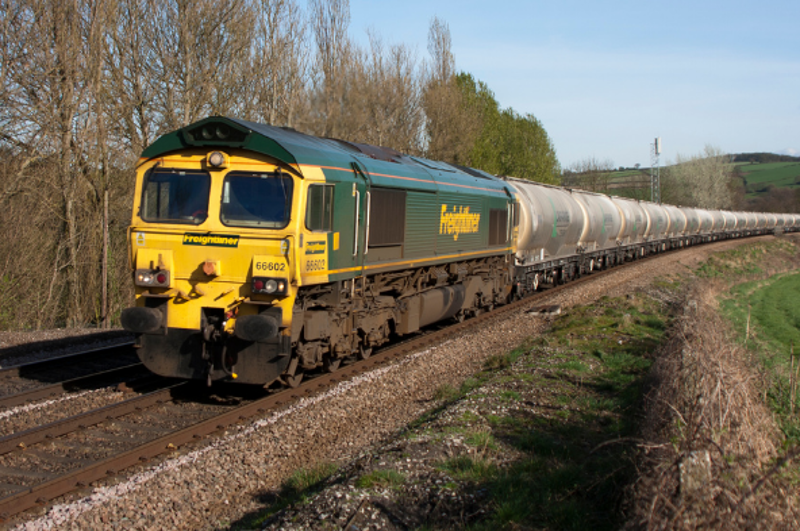- government announces ambitious 2050 target to grow rail freight by at least 75%
- delivers Transport Secretary commitment to move more goods by rail while growing the economy and improving the environment
- sets the pace for the sector and builds on government’s strong record of investment in rail freight
Even more vital goods will be transported across the UK by rail, following an ambitious target announced by Transport Secretary, Mark Harper, today (20 December 2023) to grow rail freight by at least 75%.
From delivering food to supermarkets, to transporting building materials to construction sites, rail freight is a vital part of everyday life in the UK, carrying tens of billions of pounds worth of vital goods.
Today’s announcement demonstrates this government’s drive to grow the rail freight industry even further and boost the considerable economic growth it delivers across the country by supporting supply chains and thousands of high-skilled jobs.
Not only does this target provide the sector with certainty by setting a clear pace for growth by 2050, but it will also lead to significant environmental benefits by taking lorries off our roads – slashing emissions and congestion in the process. For example, just one train can replace up to 129 heavy goods vehicles (HGVs) and a tonne of freight moved by rail produces about a quarter of the carbon emissions it does by road.
Transport Secretary, Mark Harper, said:
Rail freight helps keep this country moving, ensuring our supermarket shelves are stocked and materials are supplied to our construction workers.
Not only is it the most efficient and environmentally friendly way of transporting many goods, but it helps grow the economy across the country.
This ambitious plan demonstrates this government’s confidence in the rail freight sector and I hope it encourages businesses to capitalise on the extra opportunities so the industry continues to thrive and deliver for our country.
Today’s announcement delivers on a commitment made by the Transport Secretary in his
George Bradshaw address earlier this year, along with fulfilling a commitment in the Department for Transport’s
Plan for Rail and
Transport Decarbonisation Plan.
The target will encourage further private sector investment in projects that will grow and modernise the industry, such as GB Railfreight’s new state-of-the-art maintenance facility in Peterborough, which was officially opened by the Transport Secretary in September this year.
GBRTT Lead Director (interim), Rufus Boyd, said:
The government’s announcement today for a rail freight growth target of at least 75% growth by 2050 supports what our customers and stakeholders told us in the national call for evidence. That setting a clear ambition for rail freight growth will help bring the sector together, focus minds, break down silos and be a catalyst for private investment.
Rail freight is already a big success story. Moving goods by rail is a greener option and helps cut road congestion, and what we have here is an opportunity to grow rail freight’s modal share. I am convinced that through collaborative working the industry can rise to this challenge.
The
Rail Freight Growth Target also forms a key part of the government’s continual drive to improve the long-term capacity of the rail freight network, with billions of pounds of redirected funding from HS2 now further supporting schemes to improve rail infrastructure and services in all parts of the country.
Director General of the Rail Freight Group, Maggie Simpson, said:
We are delighted that government has recognised the economic and environmental benefits of growing rail freight. This target sends a strong message about the benefits and potential of rail freight which will encourage investment by industry and private businesses and attract more customers to move their goods by rail.
As recently announced through the
Network North plan, the transformative Ely Area Capacity Enhancement scheme, backed by around £550 million of government funding, will see an extra 6 freight trains per day to and from the Port of Felixstowe – the equivalent of taking 98,000 lorry journeys off the road every year.
The target has been set following a detailed
call for evidence with industry leaders, customers and other stakeholders by the Great British Railways Transition Team (GBRTT). Going forward, GBRTT’s recently formed
Strategic Freight Unit will spearhead strategic leadership in the freight sector, further unlocking the industry’s potential for growth.
Network Rail Freight Director, Henry Bates, said:
Rail freight has a key role to play in Britain’s economic and environmental wellbeing, keeping supermarkets stocked, builders building and medicine moving. We want to see more freight on rail and having a government-supported, long-term target will support the sector’s ambition to grow and attract investment.


